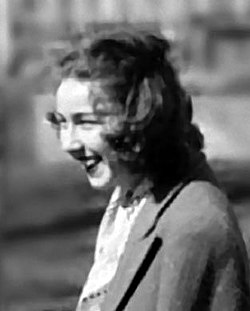Flannery O'Connor Quote
To the person who believes this- as the western world did up until a few centuries ago- this physical, sensible world is good because it proceeds from a divine source. The artist usually knows this by instinct; his senses, which are used to penetrating the concrete, tell him so. When Conrad said that his aim as an artist was to render the highest possible justice to the visible universe, he was speaking with the novelist's surest instinct. The artist penetrates the concrete world in order to find at its depths the image of its source, the image of ultimate reality. This in no way hinders his perception of evil but rather sharpens it, for only when the natural world is seen as good does evil become intelligible as a destructive force and a necessary result of our freedom.
To the person who believes this- as the western world did up until a few centuries ago- this physical, sensible world is good because it proceeds from a divine source. The artist usually knows this by instinct; his senses, which are used to penetrating the concrete, tell him so. When Conrad said that his aim as an artist was to render the highest possible justice to the visible universe, he was speaking with the novelist's surest instinct. The artist penetrates the concrete world in order to find at its depths the image of its source, the image of ultimate reality. This in no way hinders his perception of evil but rather sharpens it, for only when the natural world is seen as good does evil become intelligible as a destructive force and a necessary result of our freedom.
Related Quotes
For the most part, people strenuously resist any redefinition of morality, because it shakes them to the very core of their being to think that in pursuing virtue they may have been feeding vice, or i...
Some of the most evil human beings in the world are psychiatrists. Not all psychiatrists. Some psychiatrists are selfless, caring people who really want to help. But the sad truth is that in today's s...
Christians sometimes make themselves into elephants afraid of mice. You have the Creator of the universe on your side; not to mention, you've been given eternal life. 'Whom or what shall you fear?' To...
About Flannery O'Connor
O'Connor was a Southern writer who often wrote in a sardonic Southern Gothic style. She relied heavily on regional settings and grotesque characters, often in violent situations. In her writing, an unsentimental acceptance or rejection of the limitations, imperfections or differences of these characters (whether attributed to disability, race, crime, religion or sanity) typically underpins the drama.
O'Connor's writing often reflects her Catholic faith, and frequently examines questions of morality and ethics. Her posthumously compiled Complete Stories won the 1972 U.S. National Book Award for Fiction and has been the subject of enduring praise.
